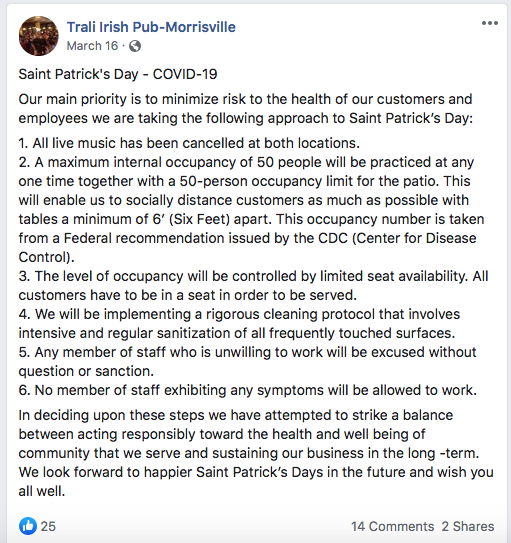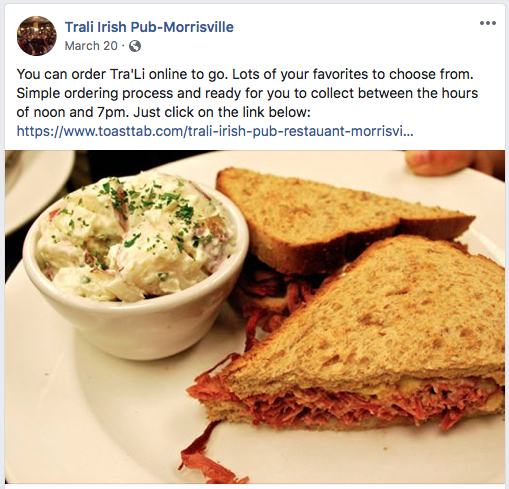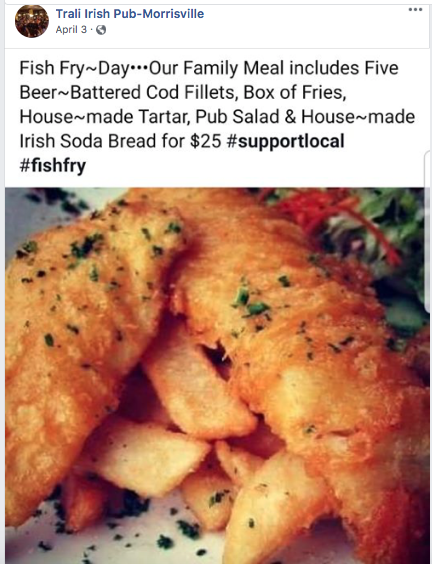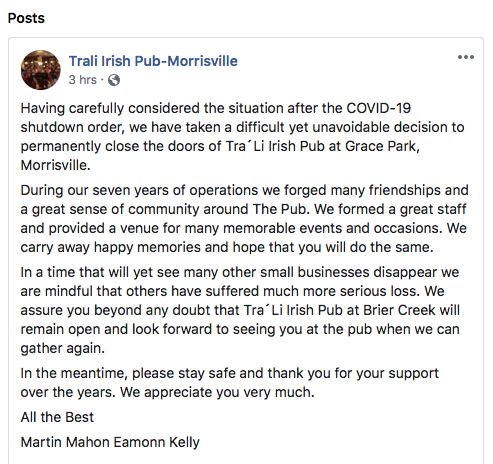There are brutal calculations taking place all across North Carolina right now. Every day that restaurants are shut down pushes more of them past the point where they can survive. The ones that still remain are already critically weakened. Many will fail in the months to come even after they’re allowed to reopen.
“Allowed to reopen” — I’m sorry, I still can’t get over the fact that we now routinely toss off phrases like this as if it’s normal. It’s not. It’s tyrannical.
I wrote several weeks ago showing how several Raleigh restaurants were handling things before and after Gov. Roy Cooper’s March 17 order shutting them down (except for takeout). Before the shutdown, you could see various ways owners tried to communicate with their patrons how seriously they were taking the virus: new cleansing regimens, new seating arrangements, new disposable menus, new policies regarding symptomatic workers, requests for patrons who aren’t well to wait till they’re better, etc.
Afterward, you saw deep anguish, farewells for now, resolve to make do in takeout and some that couldn’t. (Chuck’s, one of the restaurants mentioned, was shut down permanently earlier this week.)
The North Carolina Restaurant and Lodging Association estimates that only 35 percent of restaurants can make it after two months of being shut down or having limited operations.
Thirty-five percent.
Have you even considered what it’s going to be like if only a third of your favorite joints are going to be there when we’re finally (here it comes again) allowed to get out and dine?
We’ll never know how many restaurants could’ve succeeded if the governor had allowed them to try. Demand would be down regardless. But just as some owners are better at gauging consumer interest and meeting consumer needs in normal times, some would have been able to manage it during a virus-induced demand shock. But not with a government shutdown tacked on for over two months.
Death of a pub
Thursday night, friends of mine were lamenting the loss, just announced, of Trali Irish Pub in Morrisville. I’ve gone there a few times. It was a good pub. I saw live Celtic music performances, heard readings of Robert Burns’ poetry, saw local Celtic dance troupes, and listened to Wake and District Pipes and Drums. Most of all, I was with friends and enjoyed being in the midst of the Triangle area’s lively Celtic community.
Remember that word, community.
The day before Cooper’s shutdowns, which happened to be the day before St. Patrick’s Day, which is the biggest day of the year for an Irish pub, here is what Trali announced:

An Irish pub canceling live music on the eve of St. Patrick’s Day is being very serious about its customers’ safety. These were sober-minded measures being taken to keep staff safe, keep customers safe, and to stay in business.
These were the sort of measures that State Treasurer Dale Folwell spoke of when he urged Cooper against his order:
[The executive order] should highly encourage these limitations on operations, NOT mandate them. The eating establishments that I frequent are two steps ahead. We should honor their tough decisions and the common sense of North Carolinian’s. (Not to mention the total disruption of the LARGEST component of North Carolina’s economy).
After Cooper’s shutdown, Trali attempted to go the takeout route:


But a pub is not designed for takeout. Pub stands for public house. It’s not just a spot to get pub fare; it’s a gathering place for the community. Remember the list of experiences I had there? Music, dancing, poetry, fellowship. Losing a pub is a loss of community.
Trali owners announced May 7:

And yes, Cooper’s shutdown is what killed Trali, as it will kill many other restaurants and small businesses across the state. Cooper didn’t give them a chance. He still isn’t — a continued refusal that will kill off many that right now, somehow, are still holding on.
Don’t forget, Cooper went at it alone to shut restaurants down. It was his choice. He owns it. The Council of State voted 6-3 not to concur with that order.
Cooper’s order should not even be. But because it is, soon an unknown number of restaurants that could’ve made it, won’t.


